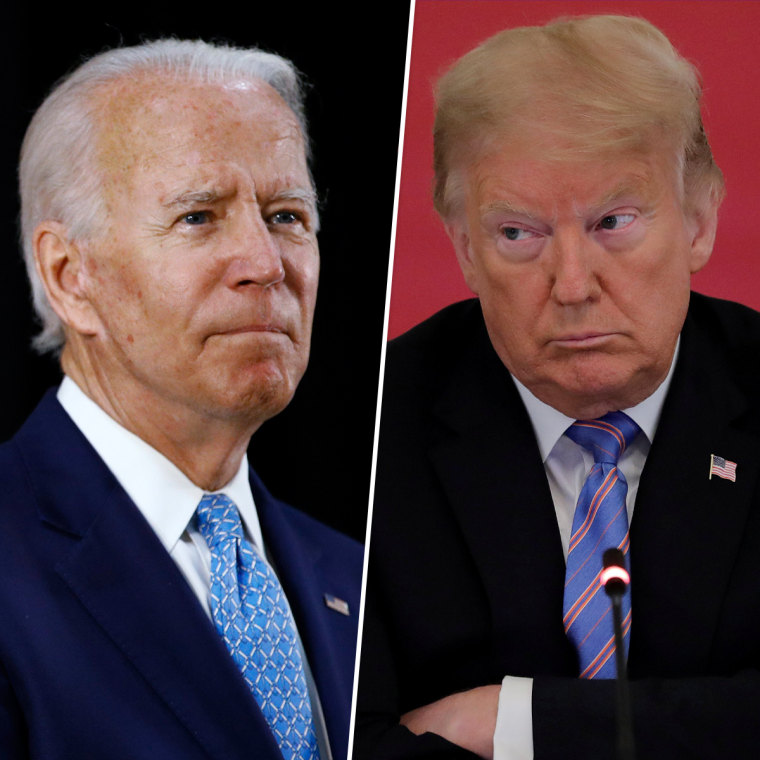It was in mid-May when former Vice President Joe Biden appeared on MSNBC and vowed not to pardon Donald Trump if elected. The Delaware Democrat went on to condemn the president's and Attorney General Bill Barr's brazen politicization of federal law enforcement.
As NPR reported, Biden made similar comments during a virtual interview this week with members from the National Association of Black Journalists and National Association of Hispanic Journalists.
Joe Biden says that he believes prosecuting a former president would be a "very unusual thing and probably not very ... good for democracy," but he would not stand in the way of a future Justice Department pursuing criminal charges against President Trump after he leaves office.
"Look, the Justice Department is not the president's private law firm. The attorney general is not the president's private lawyer. I will not interfere with the Justice Department's judgment of whether or not they think they should pursue the prosecution of anyone that they think has violated the law," Biden told NPR's Lulu Garcia-Navarro.
What the presumptive Democratic nominee described was a hands-off position: federal prosecutors simply shouldn't expect any political pressure from the Oval Office if Biden is elected.
"In terms of saying, 'I think the president violated the law. I think the president did this, therefore, go on and prosecute him' -- I will not do that," the former vice president said. Biden added, "If [a case] prove[s] to be a criminal offense, then in fact, that would be up to the attorney general to decide whether he or she wanted to proceed with it. I am not going to make that individual judgment."
Under normal political conditions, questions like these wouldn't even come up -- presidents are rarely suspected criminals -- but these are clearly not normal times. Indeed, the possibility of Trump and/or his business facing prosecution in the future is not a mere hypothetical.
Just this week, New York prosecutor explicitly referred in a court filing to the possibility of "extensive and protracted criminal conduct at the Trump Organization," and as we discussed earlier, the president's principal lender has turned over financial records as part of a probe that's apparently examining alleged insurance and bank fraud.
What's more, as we discussed several months ago, the president has already been implicated in alleged criminal misdeeds, though Trump appears to be shielded from prosecution so long as he's in office. If he were to lose in November, that shield would disappear, and the prospect of an indictment would become quite real.
By most accounts, the only way for Trump to ensure he faces no criminal liability is for him to remain in office for another four years.
As 2020 issues go, this one is obviously speculative. No one can say with confidence whether a prosecutor would even want to try to indict Trump after he leaves office.
It's far easier to say, however, that the Republican's legal liabilities are real, and if Biden wins the presidency, he may confront the possibility of seeing his predecessor face charges.
If that were to happen, Trump apparently shouldn't call the Oval Office looking for a favor.

